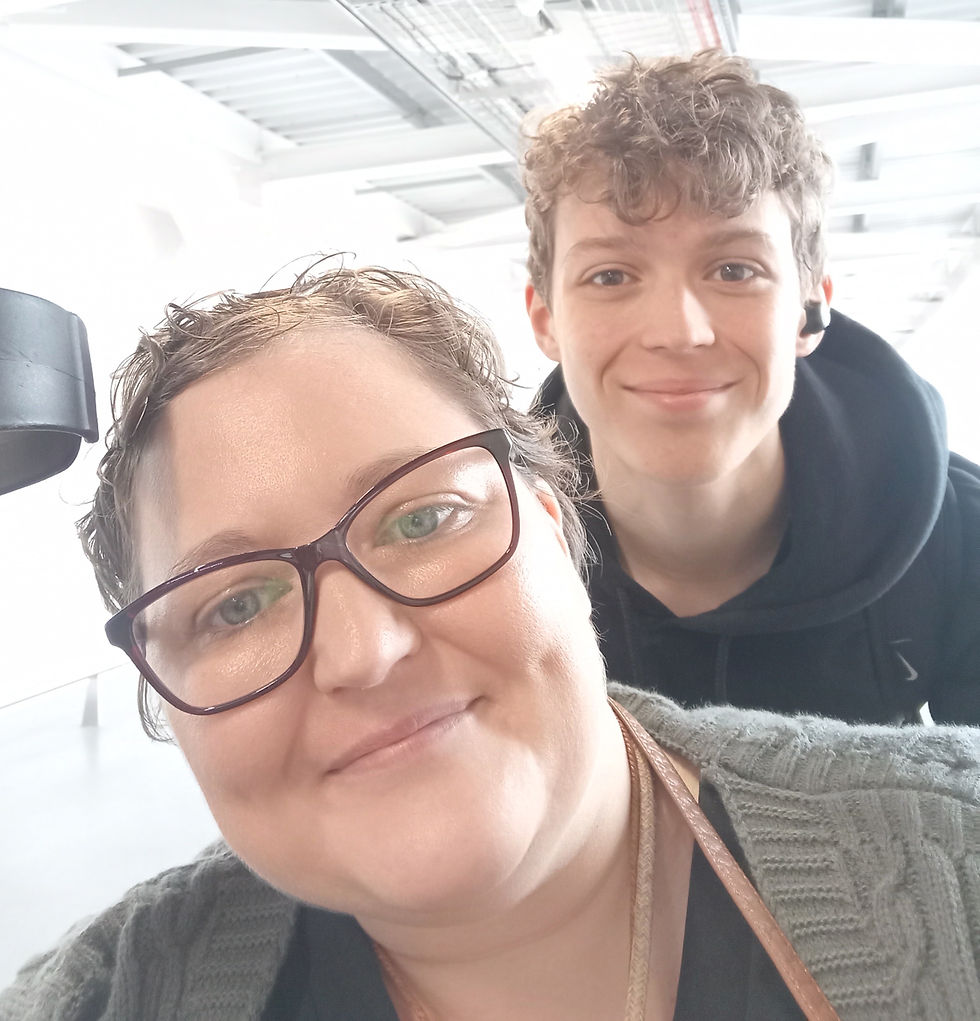Being A Neurodiverse Mum To Neurodiverse Kids
- JuJu
- Sep 11, 2025
- 4 min read
Updated: Nov 1, 2025
It has its advantages and disadvantages just like being a neurotypical parent to neurotypical kids.

It is natural to worry about what the future looks like for your child, of course it is. Will they get a job they love? Will they find a life partner? Will they be happy? But what if you added to this - Will they be able to live on their own? Will they be able to cope with being employed? Will they have friends? What will their mental health be like long term?
These added worries are based on what their diagnosis is of course, but for my children, one who is autistic and one with ADHD, these worries are with me every day.
I don’t like the phrase “high functioning”, it belittles the daily fight we face. My daughter and I would have been classed as having Aspergers or having high functioning autism prior to the change in the more recent diagnosis wording. What this is perceived to be is that we can walk, talk, hold down a job, a genius perhaps? And that is just it, perception. Our autism is just as real and hard to live with, and usually it comes with high levels of anxiety and depression because of the way we change (or mask) ourselves to feel like we fit in with the world.
As a neurodiverse mum it is a balance between meeting the needs of my kids as well as the needs of myself and it is a hard balance. It gives me an understanding of their world that not everyone understands. I speak the same language as them. I use the same phrases and the same wording when it comes to describing how I feel. I can speak on behalf of them with passion because I feel it too. I don’t feel it on behalf of them, but as well as them. When it comes to EHCPs (Education and Health Care Plans) and DLA (Disability Living Allowance), I can write about it and explain it from an insider’s point of view. I understand what it is like to hit crisis point and not want to live another day. I’ve been there too.

I fight to get out of bed every morning. Still, at 46. I need to build up the energy to get in the shower and feel cold then hot then cold, dry then wet then dry, to feel the water pulsate on my skin, to smell the scents of the shampoo and shower gel… sensory overload. Then, getting dressed and getting out on time added in - phew! PLUS, I need to help my children. I need to help them do the same thing I have done, with the added pressure of how they feel about the day ahead. Are they going to school? Do they like their teachers that day? Can they cope with what they are eating that day? Masking doesn’t happen just at school and at work, it can happen whilst getting the kids ready for school! After school drop off I used to go home, sit in the lounge in silence and would scroll on my phone trying to regulate myself. It could be 3 hours until I look up some days.
Alone time. Shutdowns. I get them because I need/feel them too.But it does make me wonder whether this is why I didn’t pick up on it earlier in their lives? I thought they were just like me (I was undiagnosed at the time and knew very little about neurodiversity). They behaved the same as me. People used to say “they’re just like their mum”, and they are, because I’m neurodiverse too!
I use social media to help me try and understand myself and therefore them more. We all have our differences, I’m not saying we are a mirror image of each other, we have our personalities mixed in there too. We’re not all built the same and it would be naive to think we are. Coping strategies that work for me don’t work for them and vice versa. We have different triggers. I have developed masking without knowing I was doing it until into my adult life and have life experience to throw in too, just like any parent in that way.

It’s not easier or better but I don’t know any different. I have fought harder for what they need and what they deserve because I know what was missing for me. Society is getting better and awareness is helping but I think there will always be a divide. I often liken things to having a broken leg. It’s just one of my strategies I suppose. You can’t fully understand what it is like to have a broken leg unless you’ve experienced it first hand. Yet every broken leg is different. Just like you can’t fully understand what it is like to be neurodiverse unless you experience it first hand, yet every neurodiverse person is different.
To help me sum up, I’ve just asked my 18 year old ADHD son what is the best advantage of having a neurodiverse mum and he said understanding his needs more than anyone else. I can help others understand him and sometimes know his needs before he does. To me that’s what part of being a parent is all about… helping
them have a voice and advocating for them. And, I will help them every day they need me to and no matter how old they are.
JuJu x




Comments